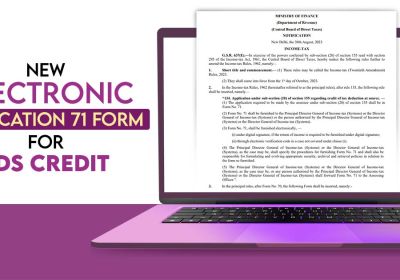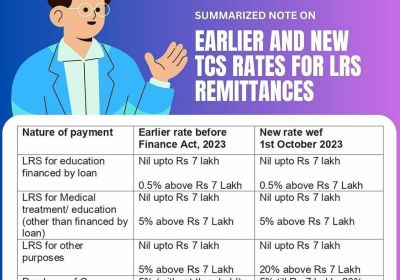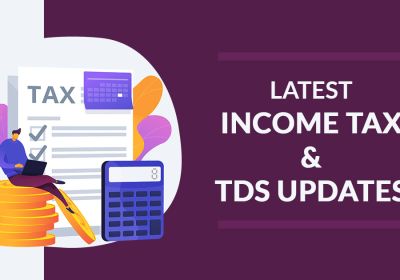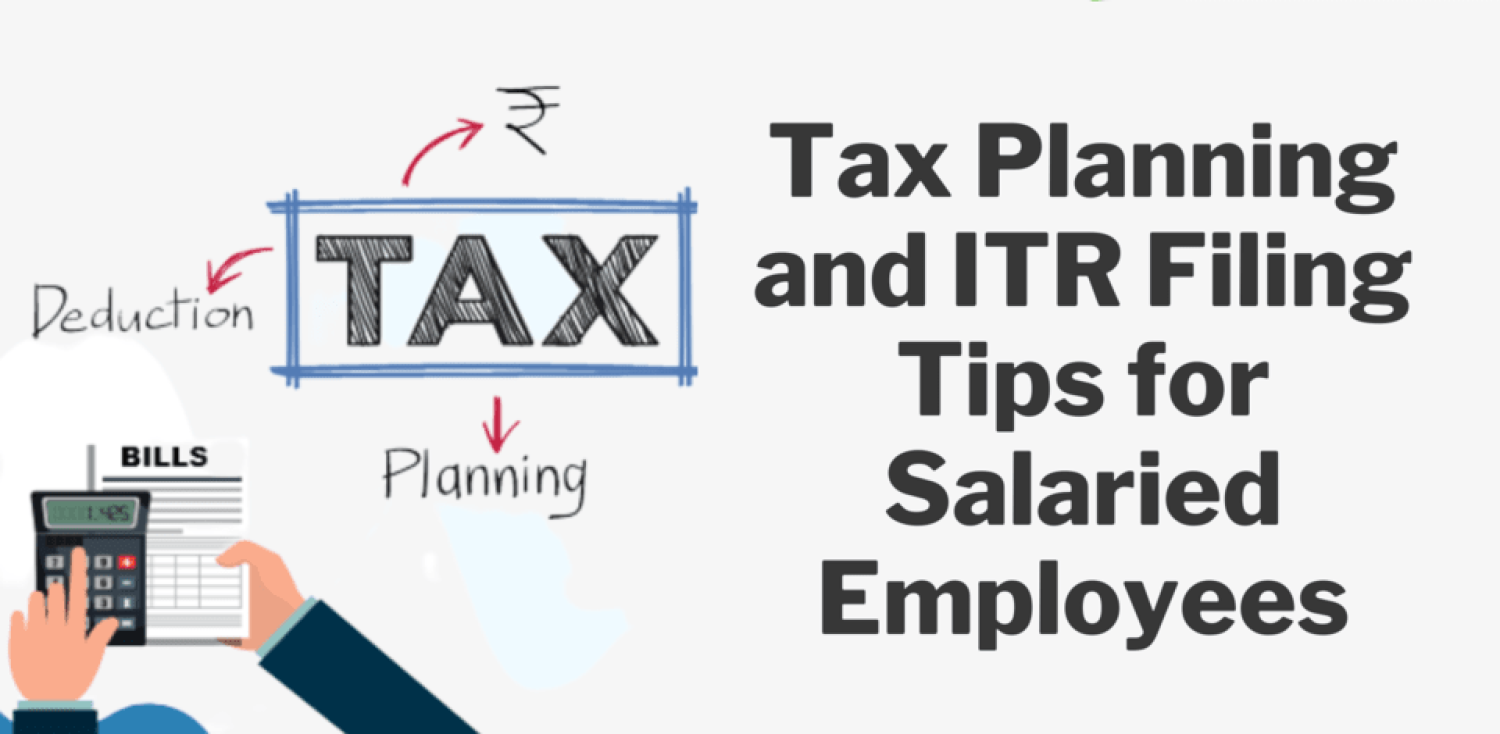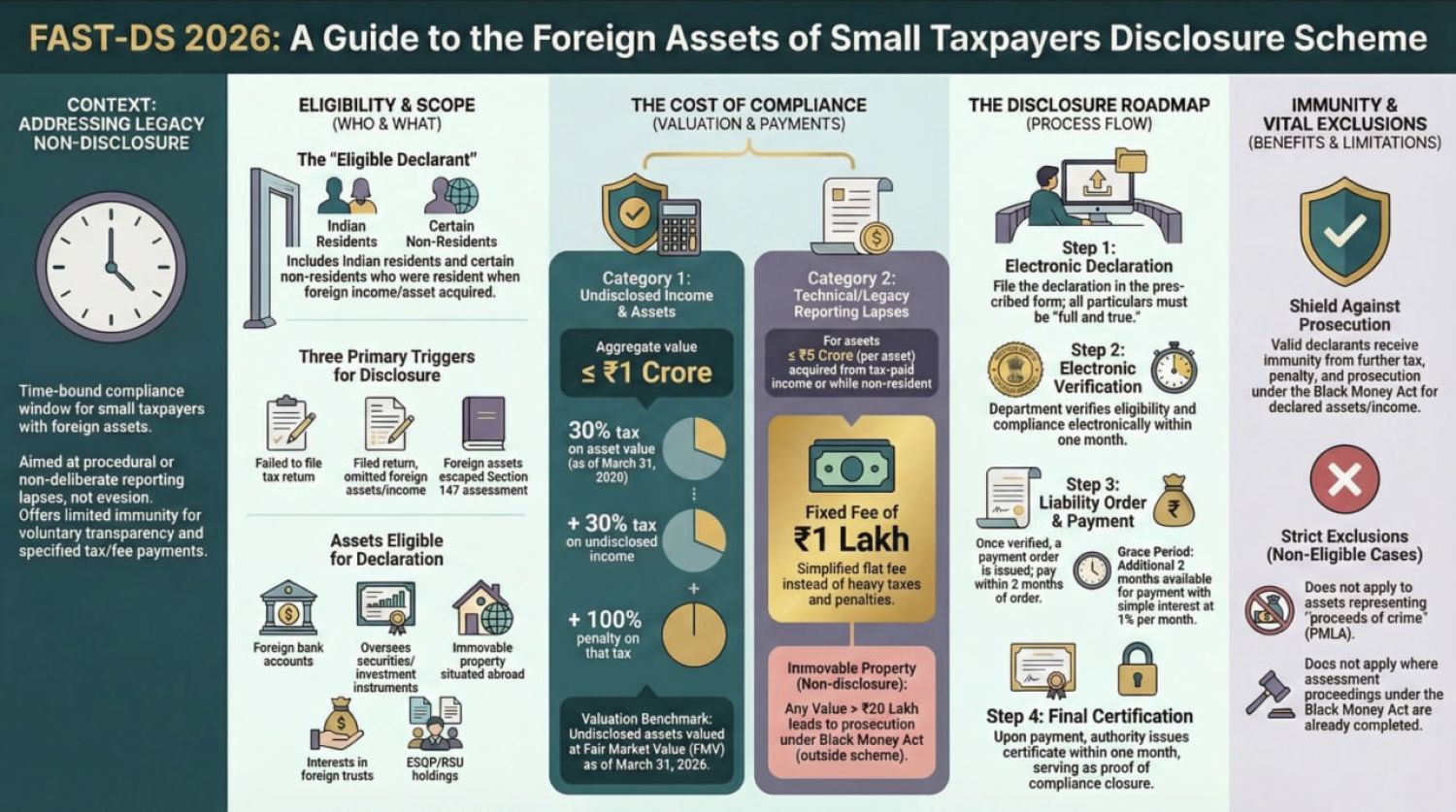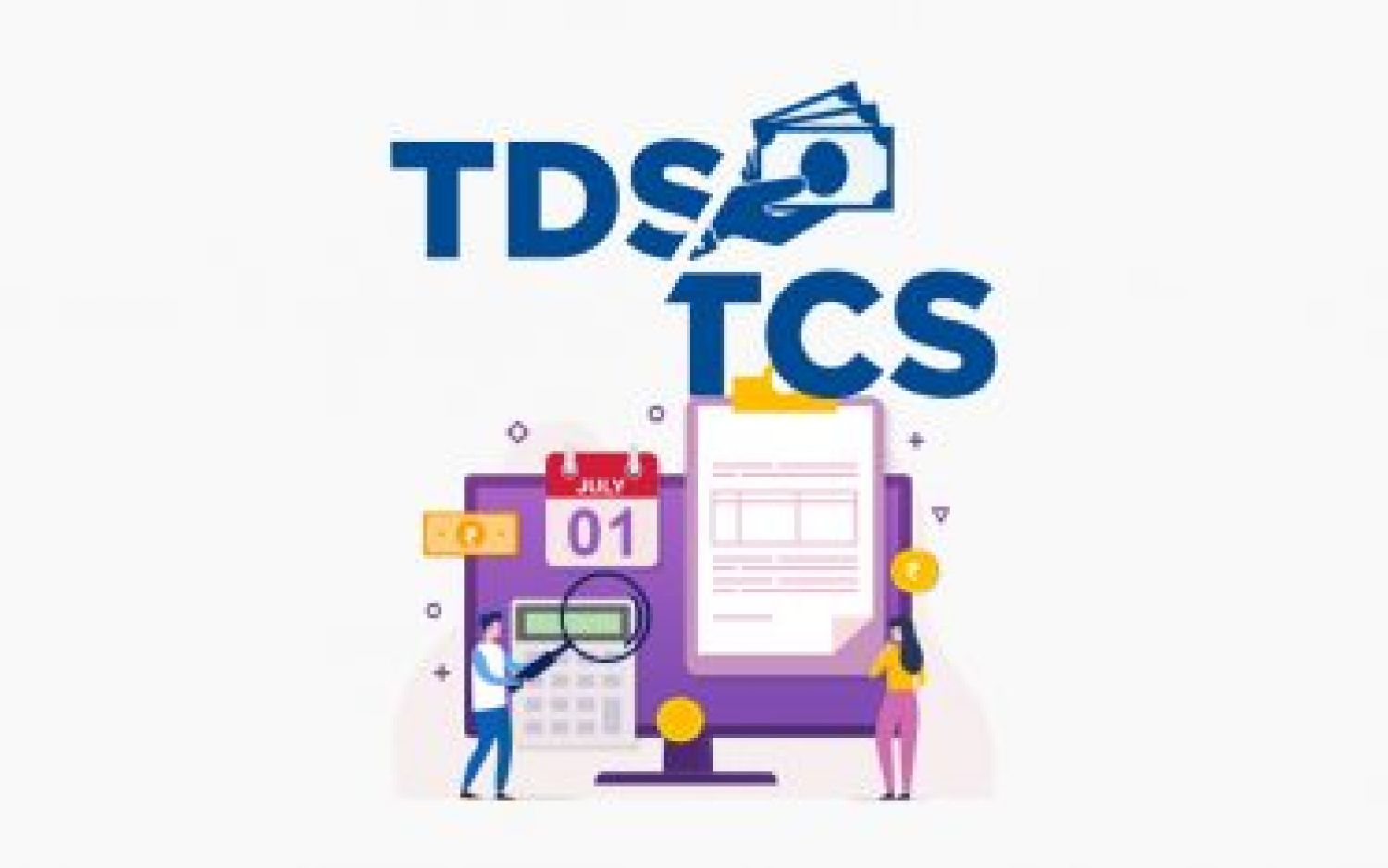
The Union Budget, which was presented in Parliament, proposed a number of significant modifications to the Income Tax Act. Certain adjustments to the TDS and TCS sections of the Act have been made in particular. The proposed modifications to the TDS/TCS provisions of the Income Tax Act will be discussed in this article.
Section 194 exempts dividend payments to a business trust from the TDS requirement.
|
Existing Provisions |
Amendment Proposed in the Section |
Effective from |
|
Section-194 provides for deduction of TDS @ 10% on payment of dividends by an Indian company within India to a resident Indian who is an individual. However, no TDS is required if the amount of dividend does not exceed Rs. 5,000.
It is to be noted that in the case of other than individuals, there is no threshold limit. It means if Dividend is paid even Rs. 1, TDS is to be deducted.
The second Proviso of Section-194 states that no TDS is required where the dividend is paid to insurance companies or insurers. |
No changes have been prescribed in the rates of TDS or the threshold limit.
To give relief to Business Trusts, an amendment is proposed in the second proviso of section 194 to provide that there will be no requirement to deduct TDS if such dividend is paid to a business trust as defined in clause (13A) of section 2 by a special purpose vehicle referred to in explanation to clause (23FC) of section 10.
The reasons for amendment are that the income of the business trust is exempt from tax but due to earlier provisions, TDS was deductible on such exempted income also. |
Effective retrospectively from 1-4-2020 |
Exempting requirement of deducting TDS on interest paid by an infrastructure debt fund- Section 194A
|
Existing Provisions |
Amendment Proposed in the Section |
Effective from |
|
Section- 194A (1) provides for deduction of TDS @ 10% on interest other than interest on securities.
Section 194A (3) prescribes the exceptions where TDS need not be deducted under section 194A.
Clause (x) of sub-section (3) exempts TDS requirement on interest paid by infrastructure capital company or infrastructure capital fund or a public sector company or scheduled bank in relation to zero-coupon bond |
Amendment in proposed in clause (x) of sub-section (3) to include infrastructure debt fund.
The effect of the amendment is that there will be no requirement of TDS deduction on payment of interest in relation to zero-coupon bond issued by an infrastructure debt fund |
Effective from 01-04-2021 |
Providing a higher rate of TDS for non-filers of TDS under section 194-IB
|
Existing Provisions |
Amendment Proposed in the Section |
Effective from |
|
Sub-section (1) of Section 194-IB provides that any individual or HUF (other than those referred in section-194I), who pays a resident person any rent exceeding Rs. 50,000 per month shall deduct TDS @ 5%. Such TDS to be deducted at the time of crediting rent for the last month of the previous year or last month of tenancy, whichever is earlier
Further, as per sub-section (4) of the section, if the PAN of the payee is not available, TDS shall be deducted as per section 206AA @ 20%. However, such deduction shall not exceed the rent payable for the last month of the previous year/ last month of tenancy, as the case may be |
The amendment is proposed in sub-section (4) of section 194-IB to insert a reference to new section 206AB along with section 206AA.
Section- 206AB has been inserted by this Finance Bill for prescribing a special rate of TDS in case the payee is a non-filer of the income tax return. This new section will affect the taxpayers in a tremendous manner and will cause an undue compliance burden.
We will discuss section 206-AB in this article later. |
Effective from 01st July 2021 |
Section 194P provides a deduction for senior citizens who are 75 years or older.
Section 194 P:
• This provision takes effect on July 1, 2021, and applies to Indian residents aged 75 and up who only receive income from a specific bank in the form of pension and/or interest. Eligible individuals must file a declaration with the designated bank in the appropriate form and manner, and the designated bank will deduct TDS on their behalf after taking into account the deductions allowed under Chapter VI-A and the rebate allowed under section 87A.
• If the foregoing conditions are met, such a senior citizen is exempt from filing an income tax return for the preceding year.
• Under Section 139 of the Income Tax Act, every individual whose total income during the previous year exceeds the maximum amount not subject to income tax is required to submit an ITR on or before the due date.
• However, for senior persons, filing an ITR may be a challenging task. As a result, a new section 194P is proposed to be incorporated into the Income Tax Act to exempt senior individuals from the necessity of filing an ITR. Only certain senior citizens are covered under Section 194P.
• If TDS has already been deducted under Section 194P, the indicated elderly citizen is not required to file an ITR, according to Section 194P.
Now you're probably wondering what is meant by "senior citizen" and how TDS is calculated under section 194P. Take a look at the following: -
What does it mean to be a "Specified Senior Citizen"?
A Senior Citizen who meets the following criteria is a senior citizen: -
• Who is a permanent resident of India
• Who, at any point during the relevant financial year, is 75 years old or older &
• Whose only source of income is a pension or interest from the same bank where he gets his pension &
• For this purpose, the bank is a specified (notified) bank.
He must submit a declaration to his bank in the prescribed format, detailing his income for the fiscal year and the deductions that he is entitled to.
Under section 194P, how would TDS be deducted?
Once the bank receives the declaration from the specified senior citizen, the bank will compute the senior citizen's income on the basis of the declaration, after deducting deductions eligible under Chapter VI-A related to 80C/80CCC/80D/80G, etc. and allowing rebate under section 87A of the Act, and deduct TDS equal to tax computed on such income based on the current tax rates.
Is Section 194P truly advantageous to the elderly?
This portion will not relieve older folks' burdens in any way. They are currently calculating their income and submitting their information to a tax professional in order to file their ITR. Furthermore, as mentioned by the Finance Minister, practically all incomes, including as pension and interest income, will now be pre-filled in the ITR on the Income Tax Portal. Additionally, the senior person must visit his bank and provide a written statement of his income, which he previously provided to his tax counsellor. It will not, in any way, lessen the rigour of senior citizens.
It would have been preferable if the Hon'ble FM had been more liberal in terms of tax rebates to senior persons.
This section took effect from April 1, 2021.
TDS on goods purchased- Section 194Q
The government had previously introduced section 206C(1H), which provided for the collection of tax at source (TCS) at 0.1 per cent (without PAN 1 per cent) on receipt of consideration for sales of goods exceeding Rs. 50 lakhs by a seller with a previous financial year turnover of more than Rs. 10 crores. This limit was set to relieve small taxpayers of the difficulty of compliance.
Section 194Q applies to any person who is a buyer of products with a turnover or sales of more than Rs. 10 crores in the previous financial year. If a buyer makes a purchase from a resident (seller) for a value or aggregate value exceeding Rs. 50 lakhs during the year, the buyer must deduct TDS at 0.1 per cent (5 per cent if a PAN is not provided) at the time of credit to the seller's account or at the time of payment, whichever comes first.
Section 206AA imposes a higher rate of TDS if the payee fails to provide a PAN.
The Income Tax Act, Section 206AA, states that if the deductee fails to provide his PAN to the deductor, the deductor must deduct TDS at the higher of the following rates:
• at the rate set forth in the applicable section of this Act; or
• At the current rate; or
• 20% discount
If a deduction is made under section 194-O, the first proviso to section 206AA (1) specifies a rate of 5% instead of 20%.
After the first proviso, another proviso is proposed that provides that when TDS is necessary to be deducted u/s 194Q and the deductee's PAN is not accessible, TDS shall be deducted at 5% instead of 20%. The change will take effect on July 1, 2021.
Cases in which TDS is not deductible under section 194Q
TDS is not required to be deducted in the following two instances under section 194Q: -
• Transactions that are subject to TDS under any other provision of the Act
• Transactions that are subject to TCS under section 206C, excluding those that are subject to section 206C (1H).
This means that if TDS/TCS is required under any other provision of the Act, TDS is not deductible under section 194Q. However, there is one exception. If a transaction is subject to TCS under section 206C (1H) and TDS under this section, only TDS will be deducted from the transaction under this section. Furthermore, the CBDT has been given authority to establish guidelines to help with the implementation of this section's obligations. Every CBDT guideline must be put before each house of parliament and is binding on tax authorities and those who are required to deduct tax.
It should also be mentioned that if the seller's PAN is not accessible, TDS of 5% would be deducted. The second proviso to section 206AA's sub-section (1) has been included for this purpose.
The provisions of the preceding section took effect on July 1, 2021.
Section 196D: Amendment to the provision relating withholding tax on payments made to FIIs:
- Section 196D of the Act allows FIIs to deduct tax on income derived from securities as described in clause (a) of sub-section (1) of section 115AD. Such a deduction is done at a rate of 20%.
- A proviso is proposed to be included in section 196D to rationalise the provision by enabling the benefit of agreements u/s 90 or 90A of the Act while deducting TDS on payments to FIIs (1).
- The proposed amendment states that if a payee (FIIs) to whom an agreement referred to in section 90(1) or 90A (1) applies and the payee has furnished the tax residency certificate referred to in section 90(4)/ 90(4A) of the Act, the tax will be deducted at the rate of 20% or the rates provided in the agreement, whichever is lower.
- The modification took effect from April 1, 2021.
206AB and 206CCA (Sections 206AB and 206CCA)
- Effective July 1, 2021, Sections 206AB and 206CCA principally demand the deduction (TDS) and collection (TCS) of tax at higher rates* for the indicated person.
A specific individual is a person who has been identified.
- Who has not filed an Income tax return for 2 assessment years relevant to the previous years immediately prior to the previous year in which tax is required to be deducted/ collected
- The due date to file such return of income, as prescribed under Section 139(1), has expired
- The aggregate amount of tax deducted and collected at source is Rs. 50,000 or more in each of these 2 previous years.
*Higher rate of deduction:
TDS/TCS rates are higher for non-filers of ITRs; a new section 206AB/206CCA has been added.
|
Higher rates of TDS for non-filers of ITR- Section 206AB |
Higher rates of TCS for non-filers of ITR- Section 206CCA |
|
Section-206AA of the Income Tax Act provides for higher rates of TDS, if the deductee fails to furnish PAN to the deductor. But this section in no way obliges the deductee to file the ITR. So, to ensure ITR filing, a new section 206AB has been inserted for non-filers of ITR.
|
Section 206CC of the Income Tax Act provides for higher rate of TCS (5%), if PAN is not furnished by the buyer. A new section 206CCA has been proposed to be inserted for non-filers of ITR. The purpose of sections 206AB and 206CCA is similar. |
|
Section 206AB & 206CCA are applicable in the case of a specified person. So, it is important to understand the meaning of ‘Specified Person’. ‘Specified Person’ means a person: -
Note: - Specified person shall not include a non-resident who does not have a permanent establishment in India. The expression “permanent establishment” includes a fixed place of business through which the business of the enterprise is wholly or partly carried on. |
|
|
Section 206AB shall be applicable where TDS is to be deducted in case of a specified person under Chapter XVIIB except sections 192, 192A, 194B, 194BB, 194LBC, 194N of the Act. |
Section 206CCA shall be applicable where TCS is collectible in case of a specified person under Chapter XVII-BB of the Income Tax Act. |
|
Rates of TDS u/s 206AB: - Higher of the following: -
|
Rates of TCS u/s 206CCA: - Higher of the following: -
|
|
In addition, if the deductee has not furnished his PAN to the deductor, the tax shall be deducted at the rates provided in this section or in section 206AA, whichever is higher Rates prescribed in 206AA: Higher of: i) Rate specified in the relevant provision; ii) Rate or rates in force; or iii) 20%. Conclusion: In case deductee has neither furnished his PAN nor filed ITR for the preceding two years as required in section 206AB, the tax will be deducted at higher of: 1) Twice the rate specified in the relevant provision of the Act 2) Twice the rate or rates in force; or 3) 20%. |
In addition, when the collectee fails to furnish his PAN to the collector, the tax shall be collected at the rates provided in this section or in section 206CC, whichever is higher Rates prescribed in 206CC: Higher of: i) Twice the rate specified in Section 206C; ii) 5%. Conclusion: In case collectee has neither furnished his PAN nor filed ITR for preceding two year as required in section 206CCA, Tax will be collected at higher of: 1) Twice the rate specified in Section 206C; 2) 5%. |
|
If the provision of section 206AA is also applicable to a specified person in addition to this section, TDS shall be at the rate higher of rates u/s 206AA & 206AB.
|
If the provision of section 206CC of the Act are also applicable to a specified person, TCS shall be at the rate higher of rates u/s 206CC & 206CCA |
|
These sections will come into effect from 1st July 2021. |
|
An exception to these parts: If TDS is deductible under the following sections, section 206AB will not apply.
• TDS on Salary (Section 192);
• TDS on EPF withdrawal under Section 192A;
• TDS on winnings from lotteries, crossword puzzles, and other similar activities (Section 194B).
• TDS on racehorse winnings, Section 194BB;
• TDS on revenue from a Securitization Trust investment under Section 194LBC;
• TDS on cash withdrawals (Section 194N).
Furthermore, non-residents who do not have a permanent establishment in India will be exempt from this part.
• As previously stated, the term of a specified person includes those individuals who have not filed an ITR for both of the applicable assessment years. As a result, if the individual has submitted a return for any of the two assessment years, the provisions of this section do not apply.
• This section makes no exceptions for those who are not required to file an ITR. As a result, even though the person is not required to file an ITR under the provisions of the Income Tax Act, 1961, this section will apply if he has not filed an ITR for the relevant two assessment years.
Audit Procedure:
• Auditors will need to verify the Deductor's declarations from its deductee in order to determine the TDS/TCS rate in accordance with sections 206AB and 206CCA.
Note from the author: -
- The insertion of new sections 206AB and 206CCA has increased the assessee's compliance burden. Previously, the assessee would merely ask for the deductee/PAN. collectee's TDS/TCS was made at a higher rate if PAN was not supplied. However, after July 1, 2021, the assesses must also check whether the person has submitted an ITR for the previous two fiscal years. He should also check whether the TDS/TCS amount in those two years was Rs. 50,000 or more.
- As a result, after inserting these two sections, you must use extreme caution when deducting TDS or collecting TCS. To comply with sections 206AB and 206CCA, be prepared to ask the party for a copy of their ITR as well as Form 26AS. These parts have no rhyme or reason. The government is simply imposing additional responsibility on the assessee, which was always a requirement of the government to ensure that the ITR is completed by the person from whom TDS or TCS is deducted or paid.
Section 194Q
This section, which takes effect on July 1, 2021, allows for the deduction of tax at source on products purchased by the "buyer" at a rate of 0.1 percent at the time of crediting such sum to the resident seller's account or at the time of payment by any method, whichever comes first.
The section's application is further discussed below:
- This clause applies to buyers whose total sales, gross receipts, or turnover from the business in the preceding financial year exceeded Rs.10 crores.
- ii) During the year, such buyer must deduct the TDS of each such seller from whom the total purchase value exceeds Rs. 50 lacs.
- ii) During the year, such buyer must deduct the TDS of each such seller from whom the total purchase value exceeds Rs. 50 lacs.
- iii) TDS is deducted at a rate of 0.1 percent on the amount by which the total purchase price exceeds Rs. 50 lacs.
Example: If party A makes 55 lacs in purchases from party B throughout the year and has a turnover of more than Rs. 10 crores in the preceding financial year, party A will have to deduct the TDS of party B on Rs. 5 lacs (55-50) at the rate of 0.1 per cent.
Interaction with TCS-related region 206C (1H):
The Finance Bill 2020 includes a comparable section, Section 206 C. (1H). The following table compares and contrasts this part with section 194Q:
|
Basis |
Section 194Q |
Section 206C(1H) |
|
Onus of compliance |
Buyer |
Seller |
|
Turnover limit to determine the applicability |
Previous year turnover/ gross receipts of Buyer exceeds 1 0cr |
Previous year turnover/ gross receipts of Seller exceeds 10cr |
|
Applicable from |
1st July 2021 |
1st October 2020 |
|
Threshold limit |
Purchase in excess of 50 lacs from each seller during the year |
Sale in excess of 50 lacs to each buyer during the year |
|
When to deduct/ collect |
Bill or payment whichever is earlier |
At the time of receipt |
|
Rate |
0.10% |
0.10% |
|
Rate if PAN not available |
5% |
5% |
|
Return Form |
26Q |
27EQ |
If a transaction is covered by both sections 194Q and 206C (1H), the requirements of section 194Q will take precedence.
illustrative Situations for applicability of TDS and TCS:
|
Situation |
TDS/ TCS applicability |
|
T/O in preceding FY Buyer >10 cr, seller<10cr |
194Q: Buyer to deduct TDS |
|
T/O in preceding FY Buyer <10 cr, seller>10cr |
206C(1H): Seller to collect TCS |
|
T/O in preceding FY Buyer >10 cr, seller>10cr |
194Q: Buyer to deduct TDS |
|
T/O in preceding FY Buyer <10 cr, seller<10cr |
Nothing applicable |
|
Advance Paid by buyer on or after 1st July 2021 |
194Q will be applicable as the trigger point for 1 94Q is earlier of payment or credit of such sum to the seller |
|
Advance Paid by Buyer on or before 30th June 2021 |
Seller needs to collect TCS on such transaction u/s 206C (1H) as the trigger point for deduction of TDS is payment or credit whichever is earlier. Thus TDS is u/s 194Q will not be applicable where payments are made before 30th June 2021. |
Some key interpretations:
1) If the buyer does not comply with section 194Q, the seller is required to collect TCS under section 206C (1H) on such transactions.
2) For FY 20-21, the aggregate value of purchase shall be computed from April 1, 2021, notwithstanding the fact that the provision is effective July 1, 2021.
3) Purchase includes the purchase of capital items for the purposes of section 194Q.
Consequences of non-compliance with section 194Q:
1) Section 40a (i a): In the event of a default under section 194Q, 30 per cent of the tax-deductible purchase value shall be disallowed under section 40a (i a).
2) Section 201(1A): In the event of a default in deducting tax or depositing tax after deducting tax, the assessor will be liable to pay simple interest I at 1% for each month or part of a month on the amount of such tax from the date on which such tax was deductible/collectible to the date on which such tax is deducted; and (ii) at 1.5 per cent for each month or part of a month on the amortization of such tax.
3) Section 271C: A penalty is imposed under this section in the event of a failure to deduct tax at source, which is equal to the amount of tax that the person failed to deduct or collect, and is imposed by the Joint Commissioner.
Procedures for auditing:
a) Use Form 26 AS to reconcile sales and purchases:
The sale and purchase of products were not covered by TDS/TCS prior to the implementation of sections 194Q and 206C (1H). Form 26 AS, on the other hand, can now be used as extra audit proof to verify/confirm important revenue and goods acquisition transactions.
b) Tax audit implications:
Where the auditor is obliged to remark on the assessee's overall TDS/ TCS compliances under clause 34a of the Form 3CD, comprehensive reconciliation for these newly added areas may be requested.
c) Implications for calculating income tax provision and, if applicable, interest:
Noncompliance with these provisions leads to disallowances, interest, and penalties, as outlined in the preceding paragraphs. Auditors must carefully consider the same when creating a tax provision in the books of account, as well as when calculating the Income Tax liability and its influence on deferred taxes.
Website- Click here
Email id- info@carajput.com




